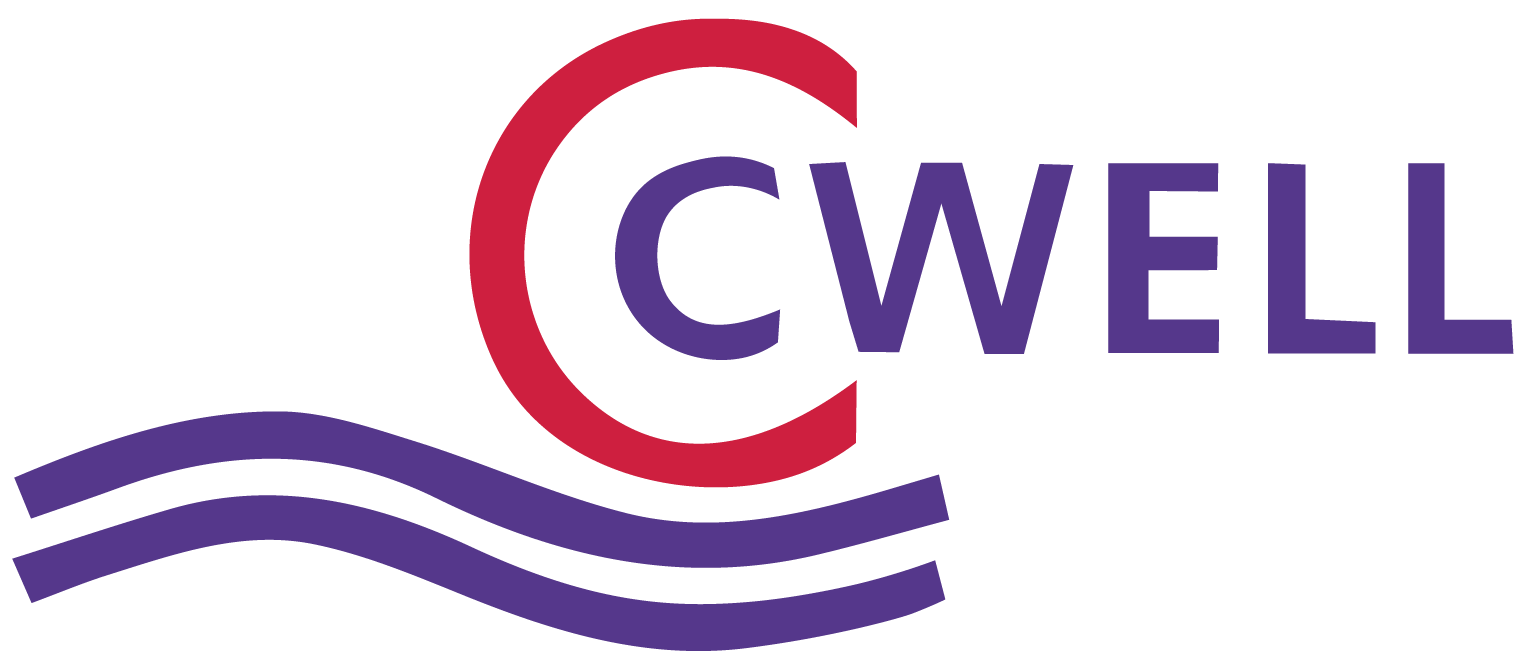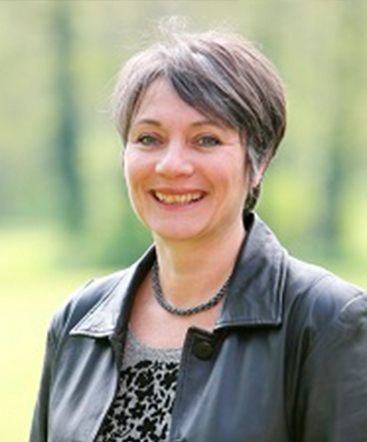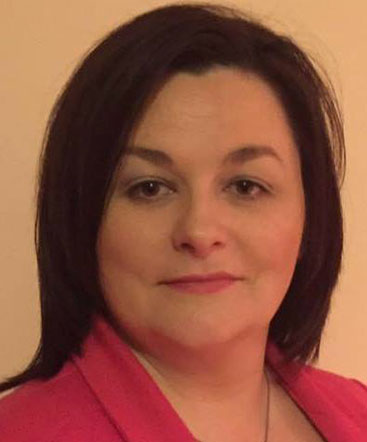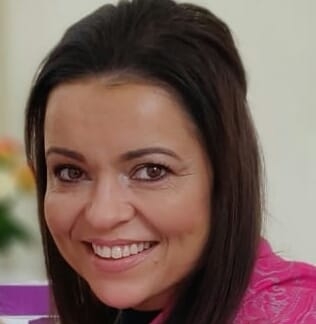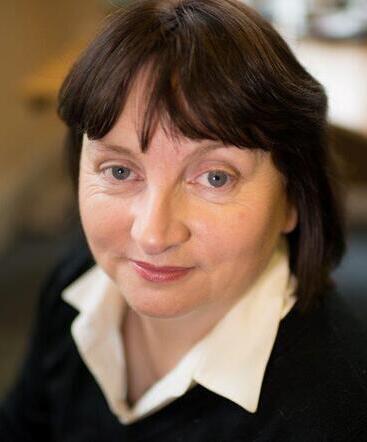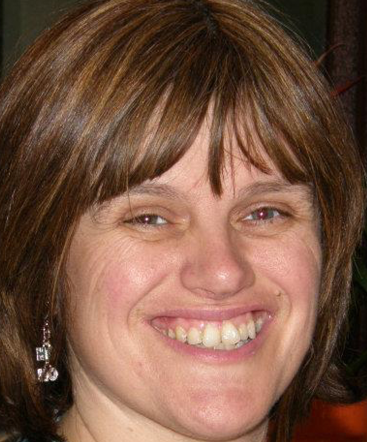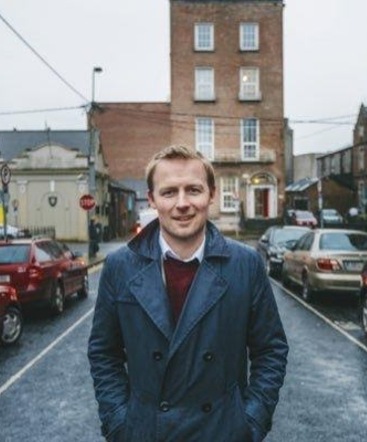Team
Maura Adshead
maura.adshead@ul.ie
How do you describe yourself?
I am a politics nerd. Politics is about people and it’s about power. It is about understanding the haves and the have nots: why our world it is the way it is; and how it could be different. How could anyone with a conscience not be interested in politics? I’m also a bit of a foodie. I figure anything you have to do three times a day, you really should enjoy right?
Why do you like teaching on CWELL?
What is your module about?
I love watching CWELL students blossom. I enjoy working with CWELL teachers, who are all so passionate and motivated about their work. I am inspired by our community partners and allies who give us such great support. It’s a pleasure and a privilege to work with such a dream team of students, staff and supporters.
I am the Course Director, which means that I am responsible for all of the modules and the programme as a whole. I could pop up in any of the classes, but you’re most likely to see me as part of the teaching team in the spring term of second year as we all work to make the CWELL projects a success.
Eileen Hoffler
Eileen.Hoffler@ul.ie
How do you describe yourself?
I am a very proud Limerick woman. I have worked in community development at home and overseas for more than 25 years. I enjoy meeting people from all walks of life. I really believe in the power of education to enhance, improve and transform lives.
Why do you like teaching on CWELL?
What is your module about?
CWELL is a very special course. It is an absolute privilege to go through the CWELL experience with students and to see the changes that happen – the improved confidence, the enhanced self-belief, the application of new skills. It is wonderful to see the benefits that CWELL brings to individual students and to their communities.
I am the Community Engagement Facilitator for CWELL so I support the students through all of the modules. I act as a liaison between the students, the communities and the university. It is important that everyone involved in CWELL benefit from their participation. The module I am particularly involved in is the final module which involves the design, implementation and evaluation of a community-based project.
Patrick Doyle
Patrick.Doyle@ul.ie
How do you describe yourself?
I’m Patrick Doyle and am originally from Manchester. Unsurprisingly like many from that great city, I combine a deep sense of civic pride with my Irish roots. I am a historian, Bob Dylan fan, and someone who tries to preserve a sense of optimism in all circumstances. I am also deeply interested in working with friends to promote a more democratic economy and can often be found volunteering in my local co-operative society where I happily tell anybody who listens about the importance of eating locally produced vegetables.
Why do you like teaching on CWELL?
What is your module about?
I am new to teaching the CWELL course and in my short time there is already so much to appreciate. The main thing has been working with different students and colleagues, all of whom are committed to building connected, resilient, and especially important, humane communities. Teaching CWELL students who are motivated by a concern for their city, communities, and neighbours is particularly inspiring and a welcome reminder about why I decided to become involved in education in the first place.
The module I teach empowers students to conceive, develop and implement a community project that offers real social value to their communities. The current context provides challenges for our student and limits options that might previously have existed. However, new opportunities and ideas emerge in times of crisis. CWELL nurtures the creativity, co-operative instincts, and leadership qualities among students to ensure they are equipped with the tools to deal with any future unforeseen challenges!
Geraldine Lyons
geraldine@breakingbeyond.ie
How do you describe yourself?
I am a Personal Development Coach, Mindfulness Teacher and Holistic Therapist who loves coffee and travelling! I returned to study in 2020 and am currently still on this journey of education. Therefore, I appreciate the resilience and strength that it takes to take such a leap of faith. Returning to Limerick after years away, I decided to study life coaching. Helping others to find their potential has helped me find mine. I have facilitated personal development programmes for the past 12 years. These programmes have assisted participants to progress on personal and professional paths.
Why do you like teaching on CWELL?
What is your module about?
One of the attractive aspects of Adult Education for me is the deliberate exchange of knowledge between participants. Having facilitated a workshop in the University with current and outgoing students at Easter, I experienced first-hand the wealth of experience in the communities of the group. We all have the ability to influence one another in adult education and I am so looking forward to supporting you as you experience the CWELL programme for yourselves.
While the journey of personal development and growth can be challenging in nature, it underpins the basis for our activity in the community. Topics in this module range from assertiveness to personal boundaries, listening skills and self-esteem. Module content supports each participant to promote positive mental health and well-being in personal and community contexts. I am really looking forward to facilitating this module, which is an important building block for CWELL students to get to know each other, and create connections that are the foundations for the programme and beyond.
Lorna Moloney
Lorna.M.Moloney@ul.ie
How do you describe yourself?
In my spare time, I deliver ‘The Genealogy Radio Show’ which is aired from RCB in Kilkee. RCB is a community radio station that supports community and educational disadvantage. With over 11 series to date, this platform engages and helps learners trace their ancestral heritage. It’s a lot of fun to do and keeps me busy especially during COVID-19 where we’ve never missed a show and reached out to people all over the world.
Why do you like teaching on CWELL?
What is your module about?
Working with CWELL students on Personal development gives me an opportunity to learn as much as it does the students. I like the back and forth of this module, I like the fact that students’ practical experiences are integral to the learning and for me this working with CWELL students in such a collaborative way ensures that I can best develop the how-to methods for Professional Development Portfolios.
I work as an educational consultant on a range of courses and programmes related to upskilling, reskilling, and innovating the educational experience of adult learners for UCC and UL. I have taught Adult Learners for two decades in the areas of women’s studies, community development, innovations, facilitation, and professional development. The CWELL module on Personal Development enables me to use my experience and bring a range of skills and ideas to the CWELL students in their first year.
Orfhlaith Ní Bhriain
Orfhlaith.NiBhriain@ul.ie
How do you describe yourself?
I am a native of Limerick city. My family has been involved in music and dance education in the city and beyond since the late 1920s. I am a proud Limerick woman and a committed fan of the Limerick hurlers. I originally trained as a primary school teacher and I now lecture in dance at the Irish World Academy of music and dance. I enjoy collaborating with community partners and colleagues.
Why do you like teaching on CWELL?
What is your module about?
I am new to teaching the CWELL course and have really enjoyed the energy and expertise shared by and with my students. I recently completed a UNESCO mentorship training programme and have enjoyed applying some of the ideas and practices with my students. The students are highly engaged and deeply committed to their own learning and to empower their communities. The candour and generosity of the CWELL cohort have been impressive and has helped me to re-ignite my own passion for teaching and learning.
I teach the Active Living module using dance for health as a core element. The module delivery is co-designed in consultation with the students. Throughout the module we increased our levels of physical activity and reflected on making healthy lifestyle choices. We also used arts based methods to evaluate and reflect. The module encourages us all to take some quality time to promote health and wellbeing in our homes and communities. We dance a lot, we laugh a lot and we are present in the moment sharing our trials and tribulations in a social and supportive way. We learn practical facilitation and team building skills using dance, music, mindfulness and physical activity.
Patrick O’Donnell
Patrick.E.ODonnell@ul.ie
How do you describe yourself?
I am a doctor, researcher and teacher who works mostly on trying to make healthcare easier to access for people who find it hard to engage. I work with lots of services and people across the Mid-West in order to do this.
When I am not at work, I like spending time with my wife and three small boys. Mayo is probably my favourite place in the world when the sun shines. I like reading murder mystery books and listening to music.
Why do you like teaching on CWELL?
What is your module about?
I like teaching on the CWELL programme because I usually learn as much from the students in the class as they do from me. I love the enthusiasm and ideas that people bring to each session. I have also been really proud to see some of the ideas that started as small poster assignments on this module become reality after years of hard work.
Lexi & I teach the ‘Health and Wellbeing in the Community’ module, and we aim to give people an understanding of the many things that affect health and wellbeing. We also aim to signpost people to the many resources and services available to people in order to try and improve their health. We have designed the module to be interactive and fun, and the assessments at the end will be a great way for students to show their knowledge and ideas.
Patrick has a profile of his work in UL Links magazine:
